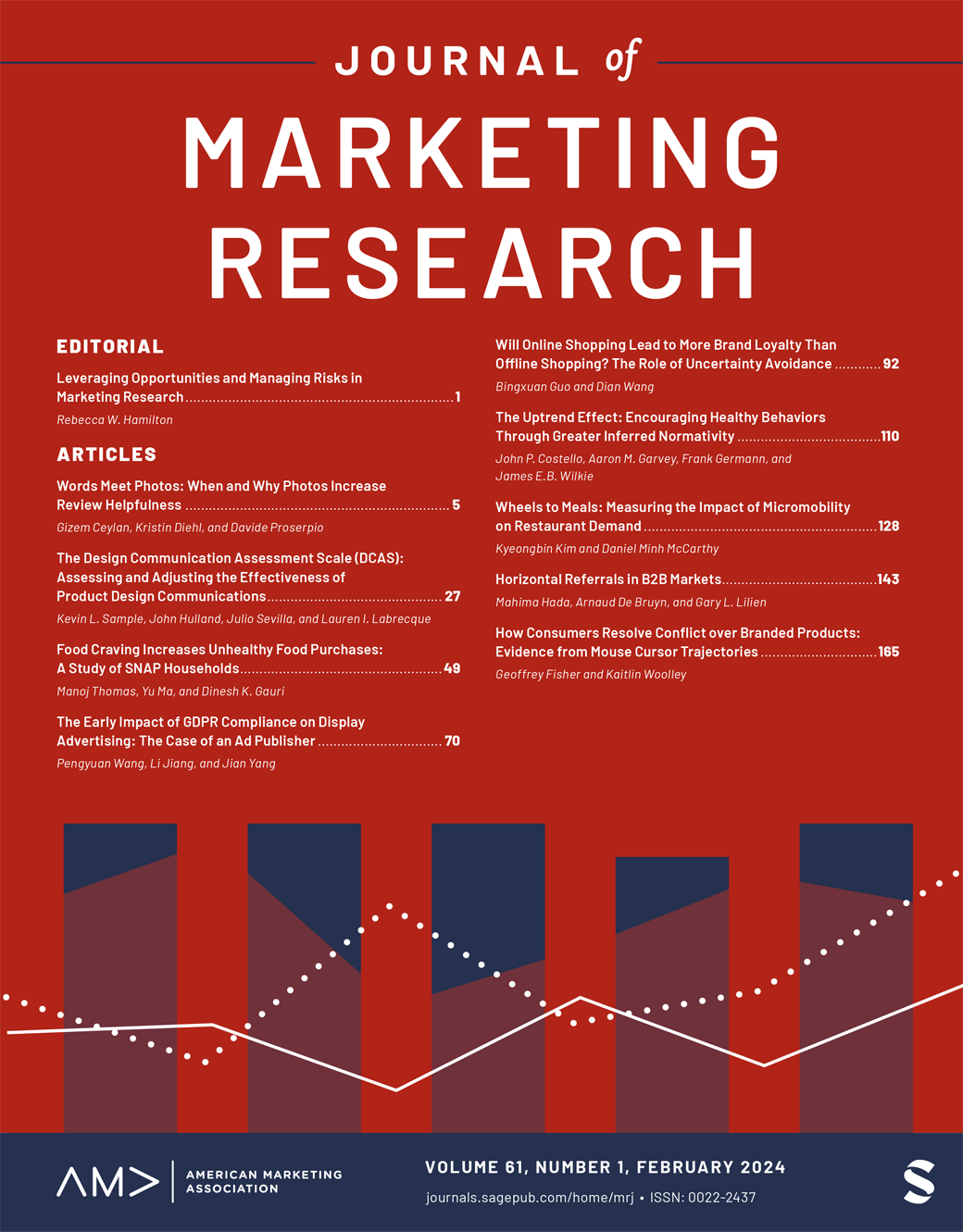EXPRESS: Power Distance Belief and Consumer Purchase Avoidance: Exploring the Role of Cultural Factors in Retail Dynamics
IF 5
1区 管理学
Q1 BUSINESS
引用次数: 2
Abstract
A common problem faced by contemporary retailers is consumers’ tendency to avoid purchases which postpones or prevents cash flow for retailers, negatively affecting their sales and profits. Little is known about the factors that drive consumers to avoid purchases or about marketing tactics that may reduce the tendency, especially from a cultural perspective. We attempt to fill this gap by exploring the role of an important cultural variable, namely, power distance belief (PDB), on consumers’ tendency to avoid purchases. PDB is the extent to which people accept and endorse inequalities in society. A series of 14 studies (including 6 studies in Web Appendix B) using a variety of operationalizations of the key variables suggest that consumers high (vs. low) in PDB are less likely to avoid purchases (Studies 1a, 1b, and 1c) because they generally perceive greater constraints on their behavior (Study 2). These constraints are aversive, triggering the desire to overcome them and have more as a compensatory mechanism, thereby reducing the tendency to avoid purchases. Accordingly, low (but not high) PDB consumers’ tendency to forgo purchases significantly reduces when they perceive greater constraints in their choices and decisions (Study 3) and when they experience a high social density (Study 4). However, high (but not low) PDB consumers’ tendency to avoid purchases significantly increases when individuals perceive that constraints facilitate hierarchy (Study 5) or that constraints lead to positive outcomes (Study 6). Theoretical and managerial implications are discussed.权力距离信念与消费者购买回避:文化因素在零售动态中的作用探讨
当代零售商面临的一个常见问题是,消费者倾向于避免购买,这会推迟或阻碍零售商的现金流,对他们的销售和利润产生负面影响。人们对促使消费者避免购买的因素或可能减少这种趋势的营销策略知之甚少,尤其是从文化角度来看。我们试图通过探索一个重要的文化变量,即权力距离信念(PDB),对消费者避免购买的倾向的作用来填补这一空白。PDB是人们接受和支持社会不平等的程度。一系列14项研究(包括网络附录B中的6项研究)使用了关键变量的各种操作,表明PDB水平高(与低)的消费者不太可能避免购买(研究1a、1b和1c),因为他们通常认为自己的行为受到了更大的约束(研究2)。这些限制是令人厌恶的,引发了克服这些限制的愿望,并更多地作为一种补偿机制,从而减少了避免购买的倾向。因此,当低(但不高)PDB消费者在选择和决策中感受到更大的约束时(研究3),以及当他们经历高社会密度时(研究4),他们放弃购买的倾向显著降低。然而,当个人认为限制因素有助于分级(研究5)或限制因素导致积极结果(研究6)时,高(但不低)PDB消费者避免购买的倾向显著增加。讨论了理论和管理含义。
本文章由计算机程序翻译,如有差异,请以英文原文为准。
求助全文
约1分钟内获得全文
求助全文
来源期刊

Journal of Marketing Research
BUSINESS-
CiteScore
10.30
自引率
6.60%
发文量
79
期刊介绍:
JMR is written for those academics and practitioners of marketing research who need to be in the forefront of the profession and in possession of the industry"s cutting-edge information. JMR publishes articles representing the entire spectrum of research in marketing. The editorial content is peer-reviewed by an expert panel of leading academics. Articles address the concepts, methods, and applications of marketing research that present new techniques for solving marketing problems; contribute to marketing knowledge based on the use of experimental, descriptive, or analytical techniques; and review and comment on the developments and concepts in related fields that have a bearing on the research industry and its practices.
 求助内容:
求助内容: 应助结果提醒方式:
应助结果提醒方式:


